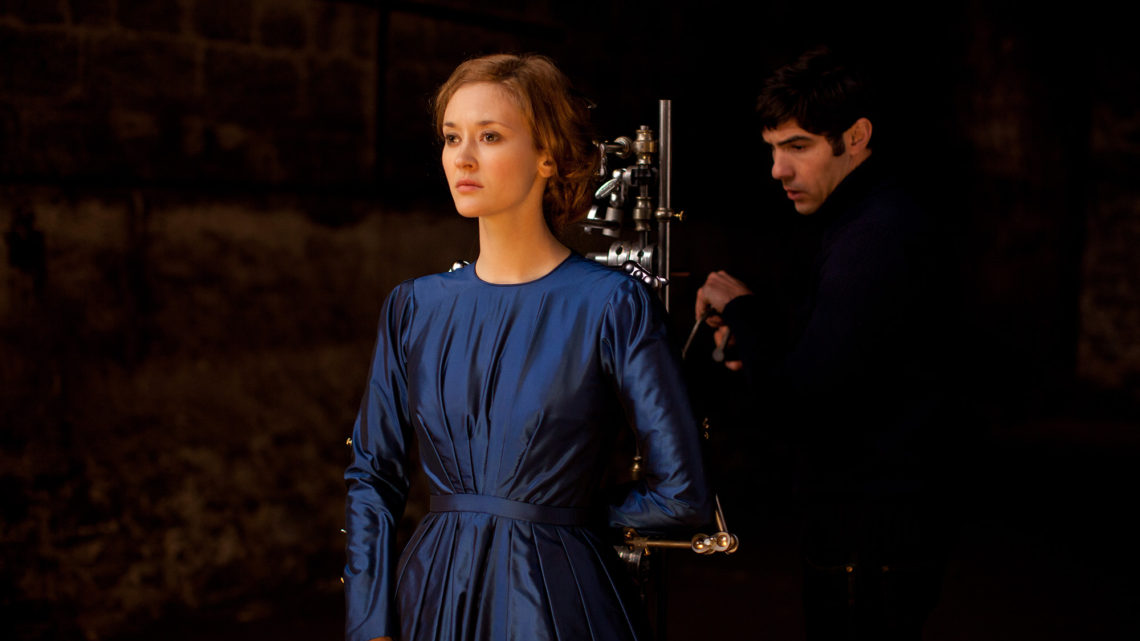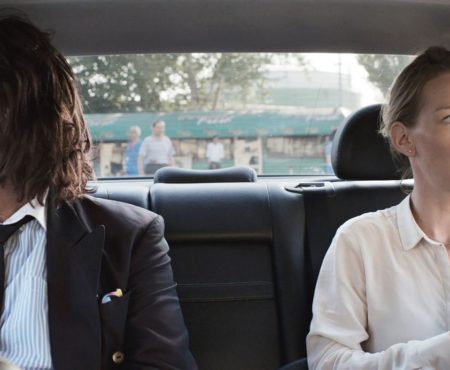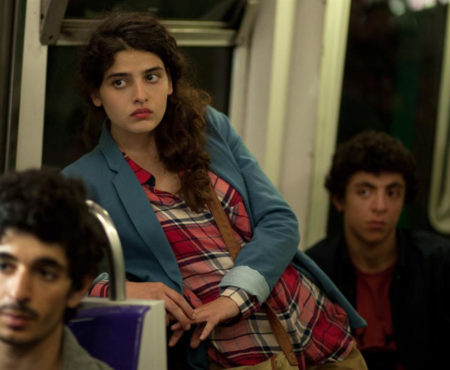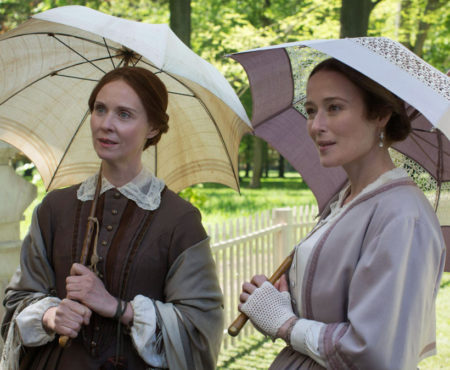In the past, Kiyoshi Kurosawa has proven to be a master at the slow burn: quietly yet mercilessly drawing out tension and suspense to prime viewers for the kill, so to speak. But if Creepy earlier this year saw Kurosawa applying this skill to effectively disturbing ends, Daguerreotype—the Japanese filmmaker’s first film outside of his home country—shows the limitations of such an approach without a coherent vision underneath.
It’s yet another ghost story from Kurosawa, with photographer Stéphane (Olivier Gourmet) so haunted by his wife’s death that he has channeled his obsession into photographing his daughter, Marie (Constance Rousseau), for a series of life-size photographs—the daguerreotypes of the title, created through purely analog means. The premise somewhat recalls that of Kurosawa’s 2015 fantasy romance Journey to the Shore, and the introduction of photography into the mix gives Daguerreotype a theoretically intriguing meta angle: It’s as much a meditation on the potential of art to capture its subjects’ souls, and maybe even resurrect them in a certain way.
Alas, like Journey to the Shore, Daguerreotype is gradually undone by plotting so nebulous that it gives the film a sense that Kurosawa wasn’t entirely sure where he wanted to go with the film, which leaves its supposedly slow-burning longueurs feeling dull indeed. Much of Daguerreotype is focused more on Jean (Tahar Rahim), Stéphane’s new assistant, who falls for Marie and eventually decides that he wants to escape the clutches of his employer’s photographic obsession. But their romance is so under-realized—the moment at which they fall in love is barely defined—that the emotional stakes of their subsequent efforts never register. Jean himself is also never really characterized in a way that would draw us into his struggles against Stéphane; mostly, he comes off as a petulant brat with apparently no scruples in trying to position his boss’s property to be sold to a real-estate developer for a hefty price. All of this leaves its ultimate destination—a scene in a car that suggests that Stéphane’s self-delusions have been passed onto Jean, however inadvertently—less affecting than one suspects Kurosawa intended.

No such issues of half-baked characterization exist with Una, theater director Benedict Andrews and screenwriter David Harrower’s adaptation of Harrower’s one-act stage play Blackbird. Though the cast of characters has been slightly expanded from its two-hander theatrical origins, there are still two people at its heart: Una (Rooney Mara), a young woman who’s still dealing with the trauma from being sexually molested as a child; and her molester, Ray (Ben Mendelsohn). One of the most disturbing takeaways from Harrower’s play is the way it blurred the lines between good and evil, leaving us with a sense that, for these two damaged characters, their relationship may have been more consensual than either of them are prepared to admit publicly, and that they will both remain stuck in that past forever.
Perhaps the principal reason that Blackbird was so powerful onstage was because of the way Harrower gradually built up to that subversive revelation; the sudden ending was cruelly effective in leaving us with a sense of psychological scarring that may never subside. In bringing the play to the screen, however, Harrower has, perhaps by necessity, opened it up through flashbacks and a prologue and epilogue that gives us a further glimpse into these characters’ lives independent of each other. Many of the flashbacks, however—especially in the rapid-fire non-chronological way editor Nick Fenton has dropped them into Una and Ray’s central confrontation—basically telegraph this concluding revelation, in some ways depriving it of the gut-punch impact the play had. Nevertheless, the core of the play—Una’s confrontation of Ray at his workplace as they both parry over their conflicting accounts of what actually occurred between them when they were both younger, and catch up with what has happened to both of them since then—remains intact, and thankfully Mara and Mendelsohn skillfully bring these characters to shattering, heartbreaking life.

“Heartbreaking” is one way to describe some of what happens in Barry Jenkins’s Moonlight. “Romantic” is another. It’s been eight years since Jenkins’s debut film Medicine for Melancholy, and while his scope for this follow-up has broadened—the three-part narrative follows one character, Chiron (Alex R. Hibbert as a young boy, Ashton Sanders as a teenager, Trevante Rhodes as an adult) from adolescence to adulthood in Miami—the alternately gritty yet tender sensibility remains.
The inner-city milieu and handheld visual style of Moonlight may be familiar from other low-budget indie productions. But while films like Ballast and Precious made it almost a badge of honor to rub our noses in miserablism, Jenkins is too sensitive a filmmaker to indulge in such exploitative tendencies. Chiron may have to deal with an appalling junkie mother, Paula (Naomie Harris), and he may struggle with both bullying at school and the dawning discovery of his own homosexuality. But in Jenkins’s world, the possibility of redemption is never too far away. As a child, Chiron finds surrogate parents in Juan (Mahershala Ali) and his girlfriend Teresa (Janelle Monáe); a scene in which Juan teaches Chiron how to swim bathes the film in a warmth that had been absent up to that point. Jenkins, however, has his realist wits about him: Juan is still a local drug dealer, and when Chiron discovers that he is, in part, responsible for Paula’s addiction, the quiet confrontation leaves Juan humbled and devastated. Not even Paula is demonized in Moonlight, however; Jenkins is generous enough to hold out some hope even for her, if perhaps ultimately too late to entirely save her son.
In the end, though, Moonlight comes down to the relationship that develops between Chiron and Kevin (Jaden Piner as a boy, Jharrel Jerome as a teen, André Holland as an adult). Though they start out as close friends, it’s their experiences as teenagers that prove the most crucial: most notably, a sexual encounter between them on a beach that inspires romantic feelings that are suddenly subverted when Kevin is bullied into hurting Chiron, an act that leads Chiron to lash out in a way that puts him on a wrong track in his life. But it’s a friendly gesture from Kevin when Chiron is grown up and back out in the streets that paves the way for a concluding passage that trembles with all the tenderness that the characters had kept bottled up between them except for one previous ecstatic moment of connection. Under Jenkins’s empathetic eye, their reconciliation is more than just a decades-in-the-making inevitability, but an event that signals a character’s willingness to finally give into the emotional side that he had kept wrapped up under a mask of machismo. It’s a consummation of not just their love, but of the emotional richness of this humane and deeply moving film.
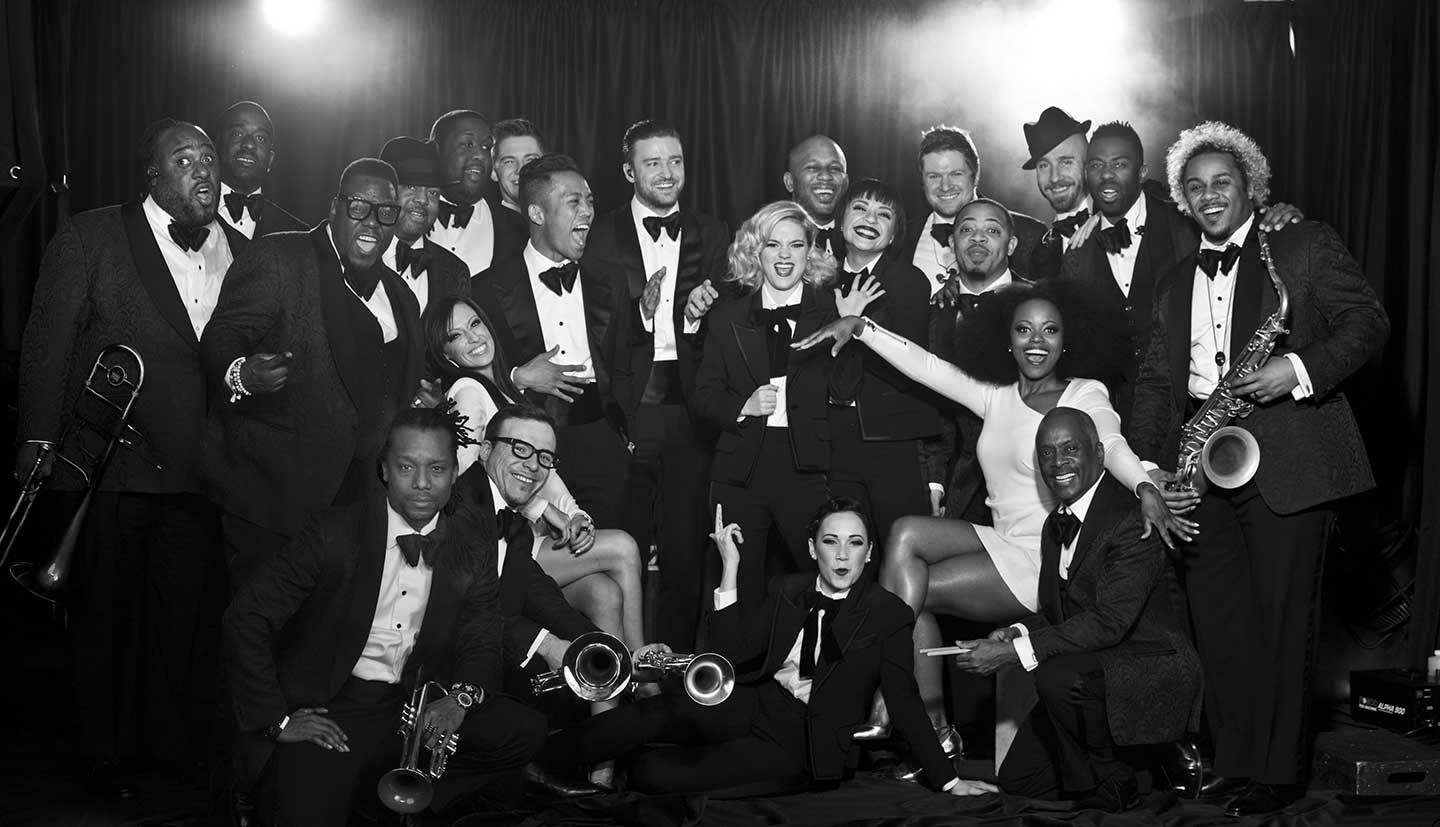
Believe it or not, Jonathan Demme offers another expression of humanism in the context of a concert documentary: Justin Timberlake + The Tennessee Kids, which captures the pop star in the last two concerts of his two-year “20/20 Experience” world tour in Las Vegas on Jan. 1 and 2, 2015. Actually, this shouldn’t be a surprise. Demme, after all, is the man behind the classic Talking Heads concert film Stop Making Sense, which remains as striking as ever in the joyousness and sense of community it expresses. Justin Timberlake + The Tennessee Kids is entirely worthy of that gold standard.
Perhaps only Demme would think to begin and end his film with an acknowledgment of all of the supporting players involved in backing up Timberlake onstage—not just the members of his backing band and troupe of dancers, but many of the technical collaborators involved: stagehands, production designers, and so on, many of whom are allowed to introduce themselves for Demme’s camera. Timberlake may allow his visage to be projected on a big screen behind him during some of his musical numbers, but Demme is hardly interested in assuaging the pop star’s ego, frequently capturing him from the over-the-shoulder perspective of other musicians onstage. Though Demme asserts his inclusive worldview through such shots and cuts, Justin Timberlake + The Tennessee Kids ultimately rests on not only the music—ecstatically celebratory in its embrace of sexuality and eroticism—but Timberlake himself, who remains as astounding a performer as ever in his multiple talents and versatility onstage. But under Demme’s gaze, he’s more man than god—an endlessly energetic man who simply wants to have a good time and encourage his collaborators and massive audience to do so as well. For me, this is the musical expression of pure joy that many others claimed Damien Chazelle’s beautifully wrought and cannily calculated La La Land was.

















